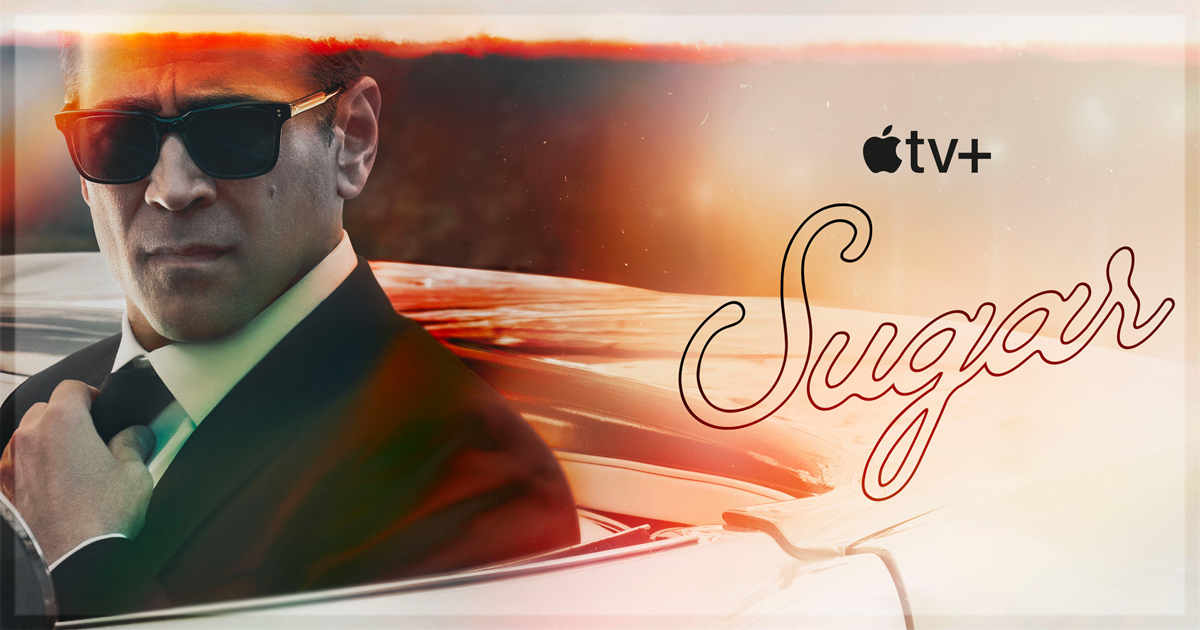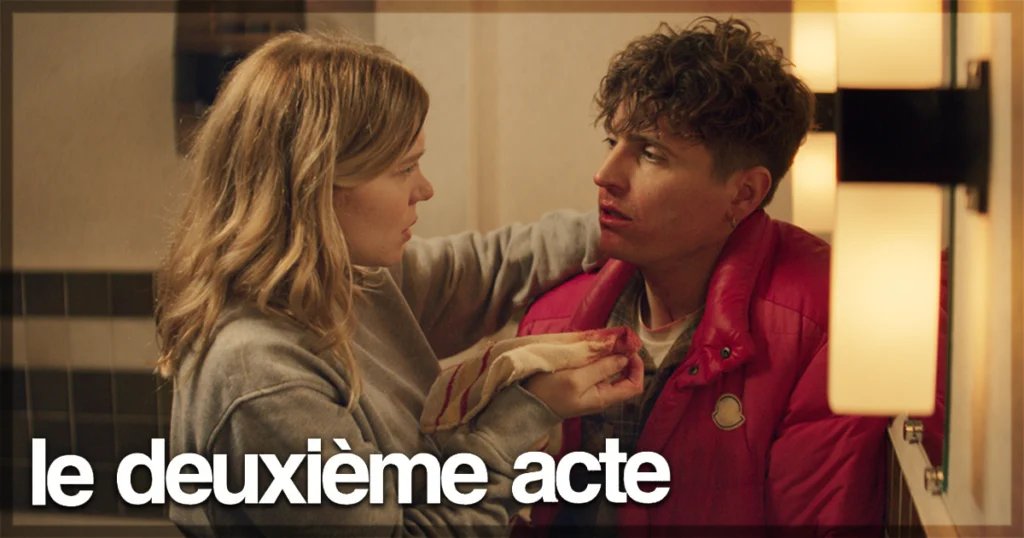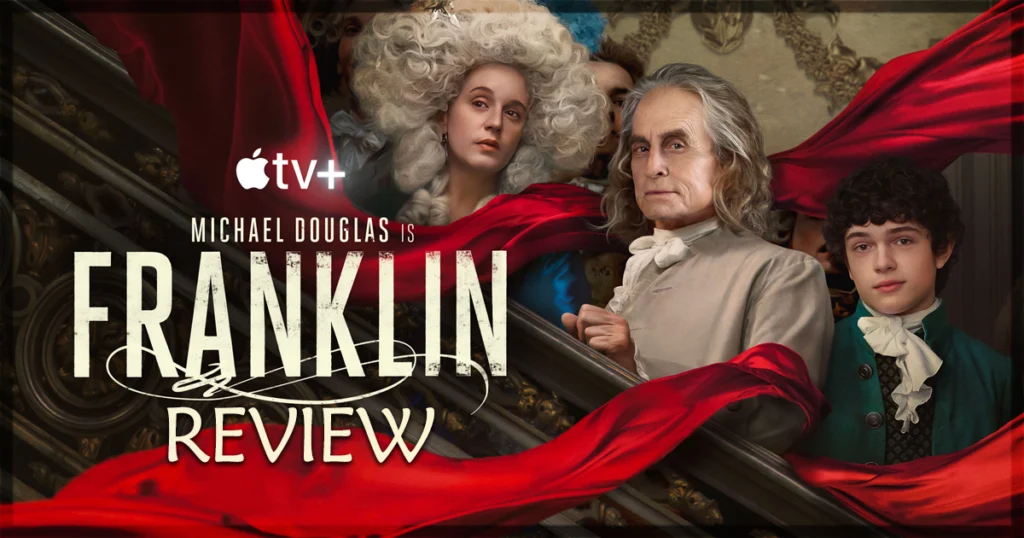The sun-soaked seediness of LA is immediately apparent in Sugar, Mark Protosevich’s neo-noir crime drama. Sugar follows Colin Farrell’s eponymous private detective hired for one case, which quickly spirals into a wider network of rich girls gone wrong, drugs, questionable law enforcement, polaroids, self-destruction, and other such Hollywood crime and its visual signifiers.
John Sugar: A Golden-Hearted Detective in a Noir World
John Sugar is a self-professed film buff, especially keen on the noirs of Hollywood’s and LA’s past; when the show unfolds from his perspective, it is as if he is in one of his beloved noirs from eras past. What sets him apart from many of his filmic predecessors, played by the likes of Humphrey Bogart, Sterling Hayden, Elliott Gould, and Toshiro Mifune, is a heart of pure gold. He is not aware of humanity’s vices and sins but has a keen sympathy for the outcast and forgotten, notably treating those forgotten by LA’s fame- and fortune-seekers – the elderly, the homeless – with unfailing dignity and kindness. His rapport with and notable curiosity towards animals is almost uncanny.
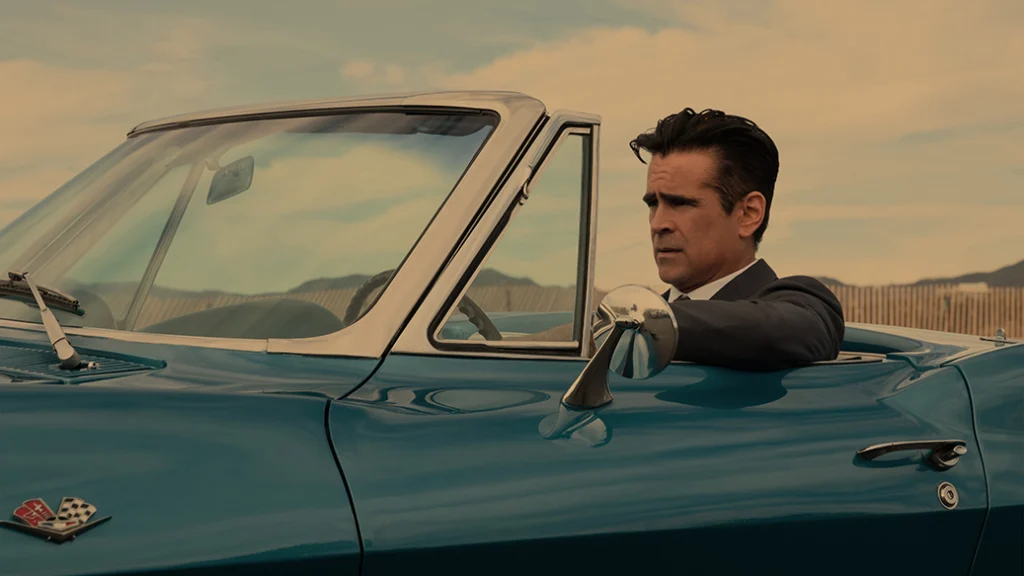
While this lessens as the show goes on, Sugar narrates his life in voiceover, including his self-description of his ability to metabolize alcohol faster than other people – something that almost seems a tongue-in-cheek nod to the (overt or disguised) alcoholism of the noir genre’s many previous (anti)heroes. This narration conceit becomes less frequent as the show goes on and the plot kicks into gear, but how can a person be this good at, well, everything?
A Twisting Mystery Unfolds
The plot arrives in the form of Jonathan Siegel (James Cromwell), a producer of the films Sugar loves. In the warm, smoky light of César Charlone’s cinematography and Tom Foden’s production design, he feels like a dying breed of show business mogul in the Howard Hughes model. But Siegel is not interested in chatting films with Sugar but in his unique set of detective skills: his granddaughter Olivia (Sydney Chandler) is missing. And from here, the mystery unfolds – often through hard left turns and surprise reveals.
The episodes’ lengths vary, most coming in around 36 minutes but all sitting between a half-hour sitcom and a 45 minute drama. While there is a virtue in sticking to a defined format, it is commendable that the creative team did not stretch out each of the eight episodes to 45 minutes when the story did not support it.

This would all be well if the story were executed strongly, but unfortunately, Sugar never seems to gel into something cohesive. The cast deliver good performances but do not wholly play in the same field. Farrell brings movie-star glamour and suavity alongside an emotional truth that comes through even the most far-fetched situations. Kirby, as Sugar’s business partner and quasi-handler, Ruby, is a confident presence, bringing out Ruby’s dual frustration with and attraction to Sugar’s emotional warmth. Amy Ryan is always a welcome character appearance, exuding warmth in her limited screen time.
A Divisive Twist in Episode Six of Sugar
The aforementioned narrative hints around Sugar’s persona and place in the world pay off in a sixth episode twist that makes or breaks the show, depending on viewpoint. (While Sugar’s twist was much discussed in the aftermath of its episode airing, spoiling it in any form for new viewers ruins the premise on which the show was built). Such bold, divisive programming is not a bad feature of the streaming landscape. In an increasingly safe age for televisual entertainment, a swing-for-the-fences approach is refreshing to see.
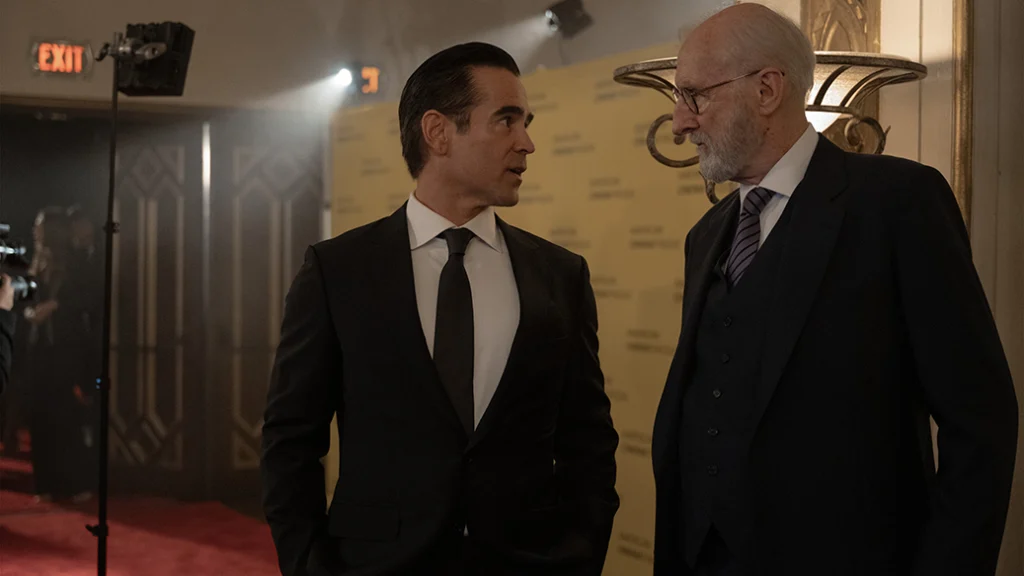
Unfortunately, the story feels too scattered to hold up to such a bombastic change in tone and content; the co-director Fernando Meirelles has talked at length about the improvisatory and collaborative nature of the set and storytelling, which sounds like a wonderful production environment but may have diluted the impact when full audience buy-in was required to buy the audacious twist. Furthermore, this shortcoming may boil down to the series’ key pastiche/homage.
Sugar’s Noir Homage: A Potential Hindrance
The noir genre’s centrality in Sugar, in both homage and pastiche, may ultimately work against it. Noir, in its many forms, often features a deeply flawed protagonist whose own predilections for and understandings of the vices and sins he or she must combat drive the narrative conflict. In The Big Sleep, both Bogart and Bacall play figures who flirt with the darkness in themselves and pull out the worst of each other while ultimately staying just on the right side as “the good guys.” Sugar is simply too clearly good and too removed from the humans around him.
That said, Sugar might now play better in a binge now that all episodes are out than it did week-to-week, where frustrations about pacing, focus, and tone are given time to stew and fade. When viewers can keep the momentum up and roll from one sub-40-minute episode into the next, clues as to the nature of the reveal may play fresher in the mind, lending the twist more credence, and frustrating pacing and plot points resolve themselves faster.
Sugar: A Noble Failure with a Promising Premise
Sugar has one of the most promising and audacious premises in recent memory, which counts for much in this risk-averse world of film and television entertainment. It may play better in retrospect; only time will tell. As it stands on its initial release, however, the result is a noble failure.
Sugar is now streaming on Apple TV+.
You might also like…

